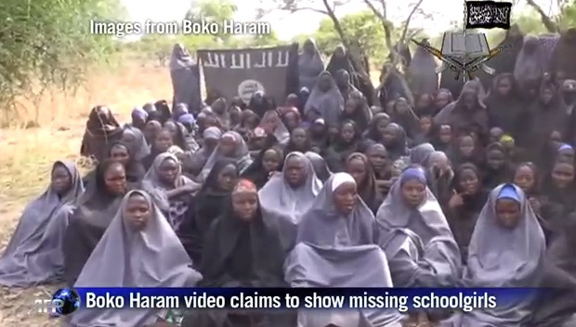
CHIBOK, Nigeria (BP) — Boko Haram has not only failed to meet the terms of an Oct. 17 “cease-fire” agreement to release the Chibok schoolgirls, but has kidnapped at least 25 more girls and continued its killing spree, Reuters News Service reported.
Suspected Boko Haram militants are blamed for kidnapping at least 25 more girls last weekend from a remote town in northeastern Nigeria, and are suspected in an Oct. 22 bus station bombing that killed five and injured 12 in Azare, Bauchi state, Reuters News Agency reported Oct. 23.
Witnesses to the latest kidnapping said Boko Haram attacked the town late at night, forcing all women to go with them but later releasing the older women, Reuters reported. In the bus station bombing, five people were burned beyond recognition and others were wounded, according to police reports.
More than 200 girls kidnapped from a Chibok boarding school remain missing a week after Nigeria’s military announced a cease-fire deal with Boko Haram militants who reportedly promised to return the girls “alive and well.”
Boko Haram’s structure makes the success of any such agreement unlikely, said Adeniyi Ojutiku, a Southern Baptist in Raliegh, N.C., who leads the Lift Up Now grassroots outreach to his homeland Nigeria.
“There are factions even within Boko Haram itself,” Ojutiku said. “Because of that, it is difficult to have a viable truce. The sponsorship of the group is diverse. It is just a rogue organization that does the bidding of whoever sponsors them.”
Religious and political motivations are in play as Boko Haram seeks to establish Sharia law across northern Nigeria, Ojutiku said.
“There is no amount of negotiation that will appease every segment of that organization,” he said. “What needs to be done is for that organization to be crushed and completely disbanded.”
In the supposed cease-fire, the girls were to be released no later than Oct. 21, Nigerian military leaders said in news reports.
In April, Boko Haram kidnapped nearly 300 teenage girls — most of them Christian — from a Chibok boarding school and threatened to enslave them as Muslim brides. At least one of the girls may have been killed as a forced suicide bomber, according to the Jubilee Campaign for religious freedom.
About 60 of the girls managed to escape independently, according to news reports. Ten of them have been brought to the U.S. to complete their education through a program run by the Jubilee Campaign.
In the months following the kidnapping, the international community called for the girls’ release and joined the Bring Back Our Girls campaign. President Obama sent 80 U.S. troops to Chad to help search for the girls.
Nigerian military officials announced in May they knew the girls’ location, but decided against military intervention to free them, fearing for the girls’ safety. Six months after being kidnapped, the girls’ location has not been disclosed and as many as 223 are believed still held.
Boko Haram, seeking to establish Sharia law, has killed thousands of Christians, moderate Muslims, government officials and civilians in attacks targeting religious communities in Northern Nigeria in the past two years, according to news reports, with the death toll calculated between 8,000 and 10,000. An estimated 1.5 million Nigerians have been forced to flee their homes, according to the U.N. Office for the Coordination of Humanitarian Affairs.
The U.S. State Department designated Boko Haram an official foreign terrorist organization in December 2013, giving the U.S. added power to weaken the group. The European Union designating the jihadists a terror group four months ago.

















